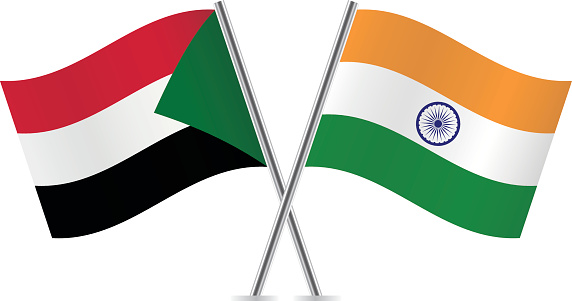
Startups: A Great Way to Connect the Youth of India and Sudan

B.S. Mubarak
Ambassador of India,
Republic of Sudan
My visit to 249 startups in Khartoum was an eye-opener to understand the potential of the youth in Sudan. During my visit I had an opportunity to interact with more than 100 youth who were passionate about creating technologies and businesses which can bring a difference to the lives of Sudanese citizens. India has a lot to share with the youth of Sudan in the field of Startups.
Government launched the Startup India initiative on 16th January 2016, intending to build a stronger ecosystem for nurturing India’s startup culture that would promote economic growth, support entrepreneurship, and enable large-scale employment opportunities for youth in India. Since the launch of Startup India initiative, India has registered a massive rise in the number of startups which rose from 471 in 2016 to 72,993 as on 30th June 2022. These startups are spread across 56 diversified sectors including IT services, healthcare and life sciences, education, professional & commercial services, food & beverages, agriculture, finance technology hardware technology, finance technology, construction and green technology.
In the year 2022 India’s unicorn journey has crossed a major milestone. The number of start-up firms valued at over a billion dollars, or unicorns, has crossed hundred.
The journey has been rapidly picking up speed. Through 2021 as many as 44 Indian Startups joined the Unicorn club raising a massive $42 billion from venture capital and private equity players — and then in the first quarter of the current year 2022 another 14 startups were added to this club. The combined valuation of Indian unicorns is now pegged at $333 billion.
The “incredible” journey of Indian Startups began 11 years ago. India has nurtured a combination of “I” to promote the Indian Startup ecosystem. This is a combination of ideas, innovations, and investment to promote the Startup revolution. India is now home to the third largest number of unicorns, after the US and China.
As late as end-2019 the expectation was that unicorns in India would cross the hundredth milestone by 2025. But then came the pandemic which led to the mass adoption of digital products and services by business and consumers. Now the revised scenario is that by 2025 the unicorn count will touch 250 in India.
The digital acceleration in India has been enabled by Smartphone penetration and the growing use of technology to take businesses forward More and more of India’s 700 million internet users are adapting to digital payments, social networking and online streaming.
Even the least tech savvy, the country’s farmers, are increasingly turning to the digital medium to buy inputs like seeds and sell their farm products, among other things.
Indian farmers have started widely using technological platforms focused on agriculture which brings together farmers, traders, food processors and input suppliers.
For example rmlglobal.com, which helps farmers maximise their returns in a comprehensive way, is used by 1.4 million farmers from 50,000 villages. Then there is krishijagran.com which is a platform for exchanging information on agro events, farm mechanisation and product launches.
The two startups which are by now household names at the head of the unicorn list are Flipkart with a valuation of $ 37.6 billion and Byju’s $21 billion.
Within unicorns, the sector that leads the field is ecommerce with 23 unicorns, followed by fintech with a count of 20. Bengaluru, the silicon valley of India is home for 39 unicorns, earning it the title “Startup capital” of India. It is followed by Delhi-NCR with 29 and Mumbai in the third position with 15 unicorns.
Last year was very good for Indian startups going public. Eleven startups, including eight unicorns, raised over $ 7 billion through public issues. They ranged from beauty e-tailer Nykaa to the food delivery firm Zomato. Even a few loss-making startups had very successful listings.
Startups in India have created 770,000 jobs for the youth. The Indian experience on Startups can enormously help the youth of Sudan to develop their capacities. This can happen through sharing of experiences, training programmes, exchange programmes and collaboration between the youth of India and Sudan to promote the culture of startups.




